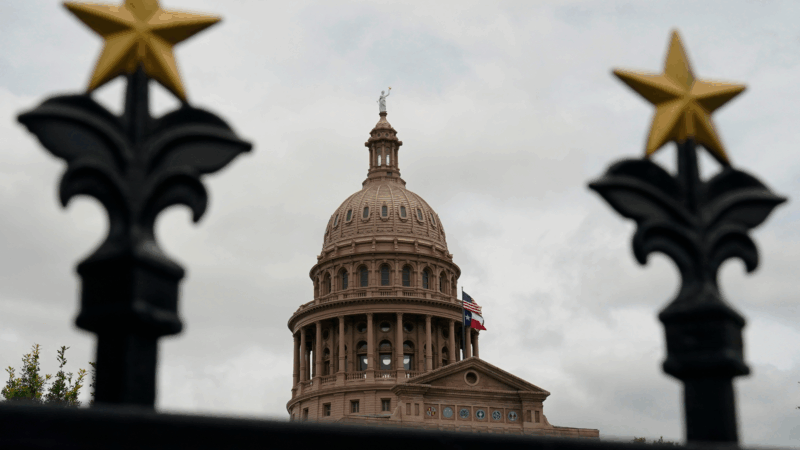Authors petition publishers to curtail their use of AI
A group of more than 70 authors including Dennis Lehane, Gregory Maguire and Lauren Groff released an open letter on Friday about the use of AI on the literary website Lit Hub. It asked publishing houses to promise “they will never release books that were created by machines.”
Addressed to the “big five” U.S. publishers — Penguin, Random House, HarperCollins, Simon & Schuster, Hachette Book Group, and Macmillan — as well as “other publishers of America,” the letter elicited more than 1,100 signatures on its accompanying petition in less than 24 hours. Among the well-known signatories after the letter’s release are Jodi Picoult, Olivie Blake and Paul Tremblay.
The letter contains a list of direct requests to publishers concerning a wide array of ways in which AI may already — or could soon be — used in publishing. It asks them to refrain from publishing books written using AI tools built on copyrighted content without authors’ consent or compensation, to refrain from replacing publishing house employees wholly or partially with AI tools, and to only hire human audiobook narrators — among other requests.
“The writing that AI produces feels cheap because it is cheap. It feels simple because it is simple to produce. That is the whole point,” the letter states. “AI is an enormously powerful tool, here to stay, with the capacity for real societal benefits—but the replacement of art and artists isn’t one of them.”
Lawsuits a focus — until now
Until now, authors have mostly expressed their displeasure with AI’s negative impacts on their work by launching lawsuits against AI companies rather than addressing publishing houses directly. Ta-Nehisi Coates, Michael Chabon, Junot Díaz and the comedian Sarah Silverman are among the biggest names involved in ongoing copyright infringement cases against AI players.
Some of these cases are already starting to render rulings: Earlier this week, federal judges presiding over two such cases ruled in favor of defendants Anthropic AI and Meta, potentially giving AI companies the legal right under the fair use doctrine to train their large language models on copyrighted works — as long as they obtain copies of those works legally.
Young adult fiction author Rioghnach Robinson, who goes by the pen name Riley Redgate, and is one of the organizers of the letter and petition, said these rulings only make the need for safeguards feel more urgent.
“With courts allowing AI access to copyrighted texts as fair use, the next — and possibly last — line of defense has to be the publishers” she said. “Without publishers pledging not to generate internally competitive titles, nothing’s stopping publishing houses from AI-generating their authors out of existence. We’re hopeful that publishers will act to protect authors and industry workers from, specifically, the competitive and labor-related threats of AI.”
Existential threat
The authors said the “existential threat” of AI isn’t just about copyright infringement. Copycat books that appear to have been written by AI and are attached to real authors who didn’t write them have proliferated on Amazon and other platforms in recent years.
The rise of AI audio production within publishing is another big threat addressed in the letter. Many authors make extra money narrating their own books. And the rise of machine narration and translation is an even greater concern for human voice actors and translators. For example, major audio books publisher Audible recently announced a partnership with publishers to expand AI narration and translation offerings.
“Audible believes that AI represents a momentous opportunity to expand the availability of audiobooks with the vision of offering customers every book in every language, alongside our continued investments in premium original content,” Audible CEO Bob Carrigan said as part of the announcement. “We’ll be able to bring more stories to life — helping creators reach new audiences while ensuring listeners worldwide can access extraordinary books that might otherwise never reach their ears.”
Robinson acknowledged the steps publishers have taken to help protect writers.
“Many individual contracts now have AI opt-out clauses in an attempt to keep books out of AI training datasets, which is great,” Robinson noted. But she said publishers should be doing much more to defend their writers against the onslaught of AI. “There are major concerns that publishers might create generative AI titles of their own that could swallow the publishing landscape, or replace editorial workers with AI tools, or the like,” she said.
NPR reached out to all five of the publishing houses named in the letter, and received one response ahead of the publication deadline.
“Simon & Schuster takes these concerns seriously,” spokesperson Susannah Lawrence said in a statement. “We are actively engaged in protecting the intellectual property rights of our authors.”
Democrat Taylor Rehmet wins a reliably Republican Texas state Senate seat, stunning GOP
Democrat Taylor Rehmet won a special election for the Texas state Senate on Saturday, flipping a reliably Republican district that President Donald Trump won by 17 points in 2024.
Trump says feds won’t intervene during protests in Democratic-led cities unless asked to do so
President Donald Trump said Saturday that he has instructed Homeland Security Secretary Kristi Noem not to intervene in protests occurring in cities led by Democrats unless local authorities ask for federal help.
U.S. intervention in Venezuela divides Houston
In nearly two dozen interviews, Houstonians expressed everything from admiration and relief to skepticism and dread following the seizure of leader Nicolás Maduro.
Anti-ICE protesters call for national action against federal immigration tactics
Hundreds of groups hold protests against federal immigration operations, calling for an end to ICE surge. Demonstrators challenge Minneapolis-based retailer Target.
Mine collapses in eastern Congo, leaving at least 200 dead
The collapse happened Wednesday due to heavy rains at the rebel-controlled Rubaya mines. Congo is a major supplier of coltan, which contains a key component in the production of smartphones.
Don Lemon and Georgia Fort vow to continue reporting following arrests tied to anti-ICE protest
The two independent journalists face federal charges related to the interruption of a church service in Minnesota earlier this month. Lemon and Fort say they were there to cover a protest.








